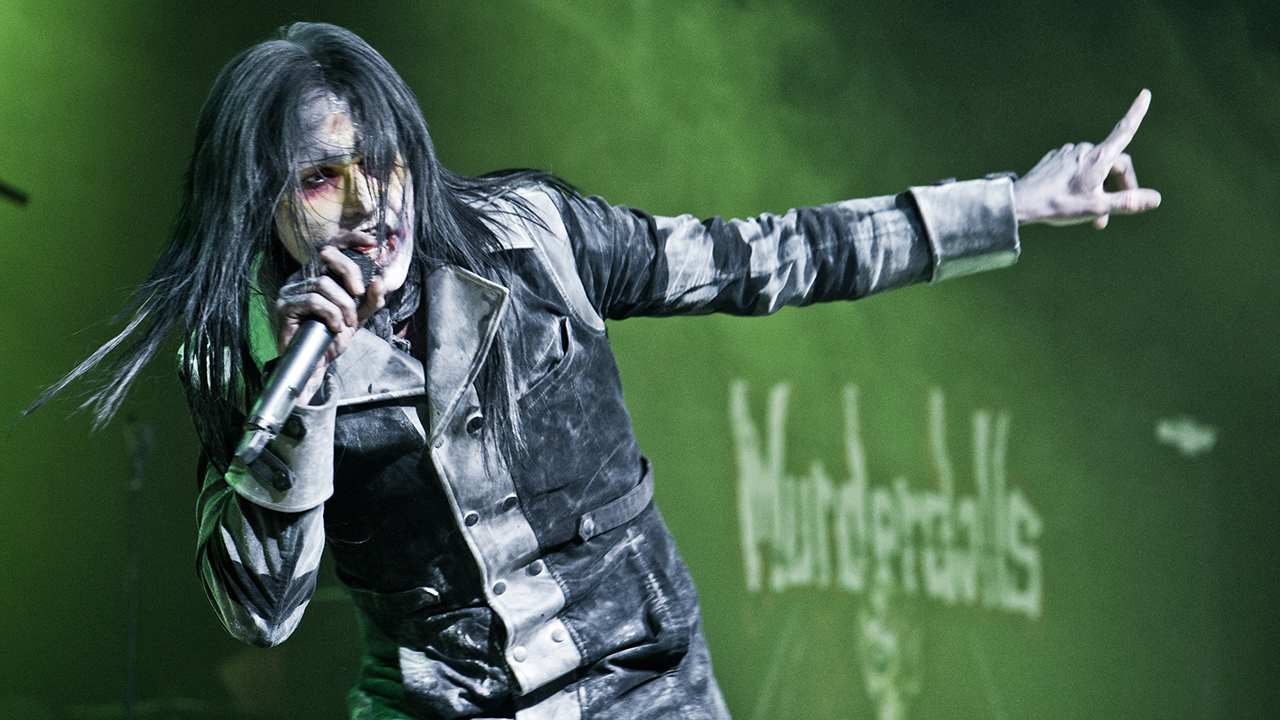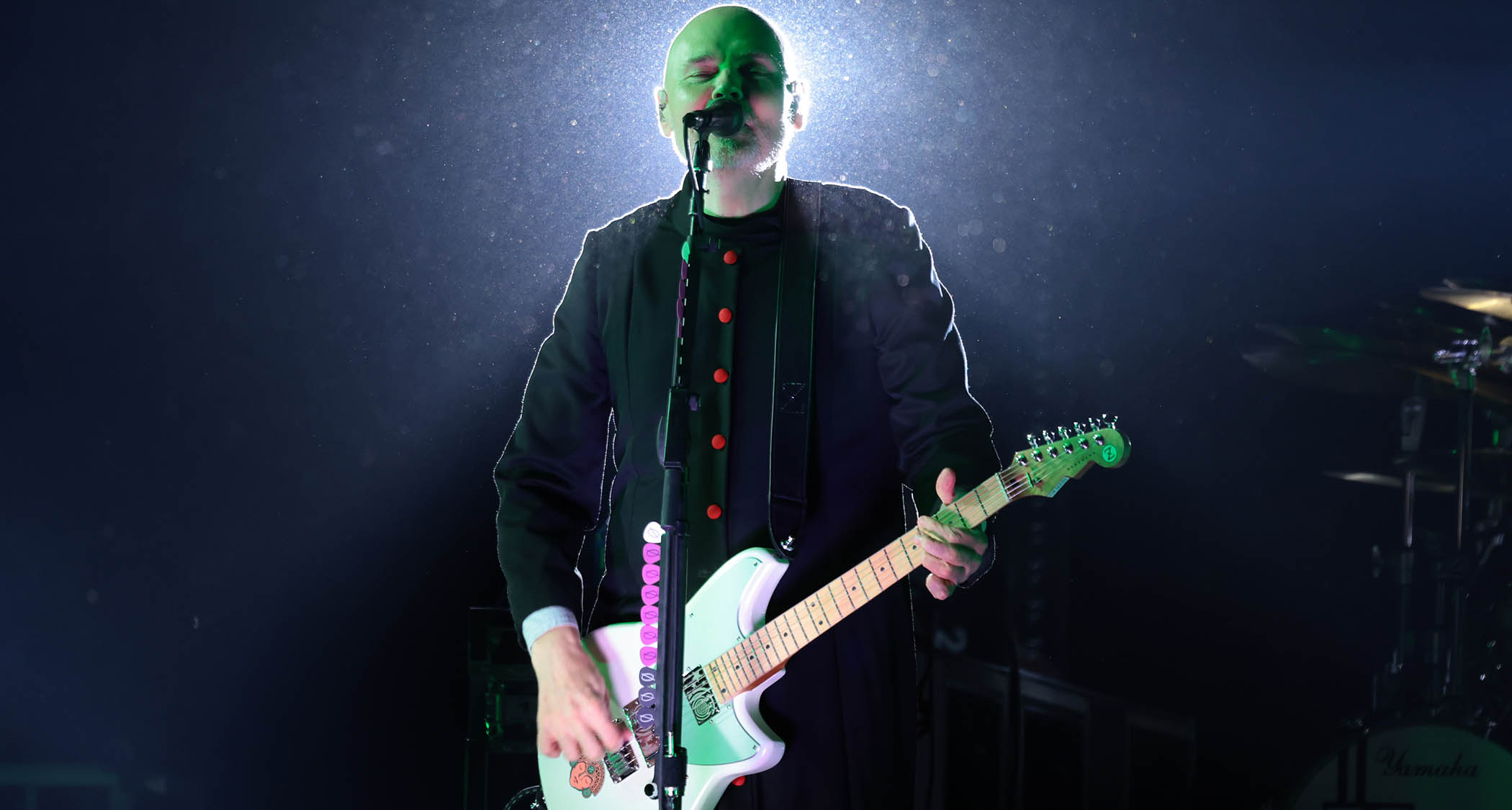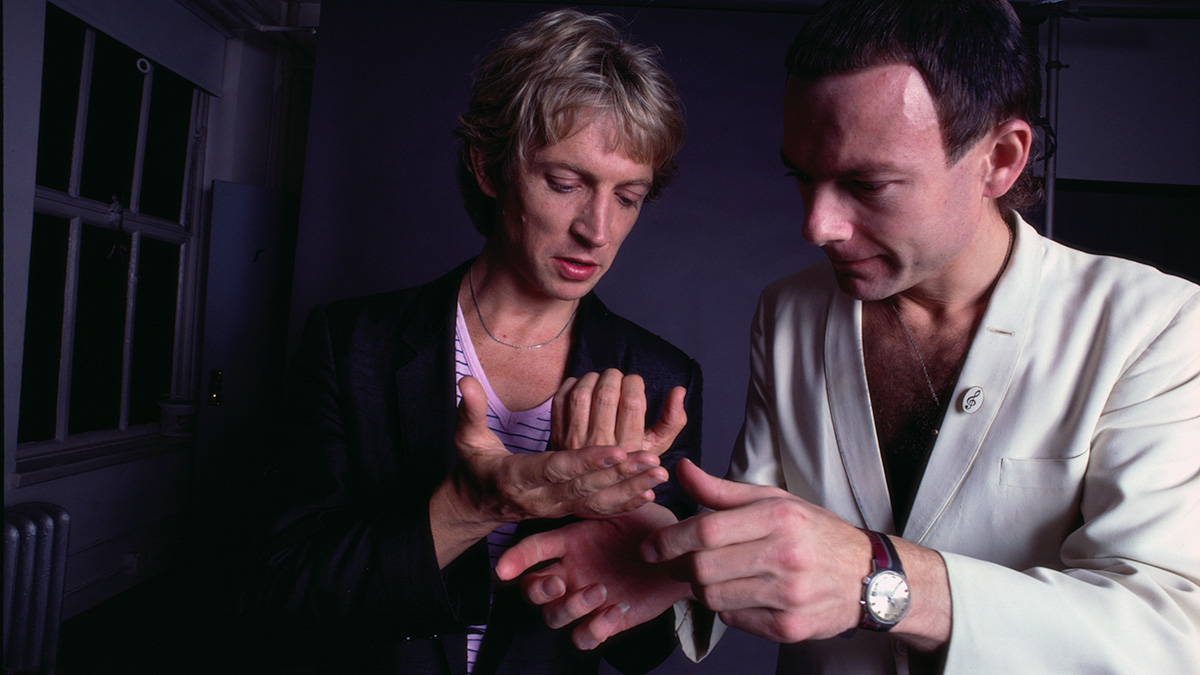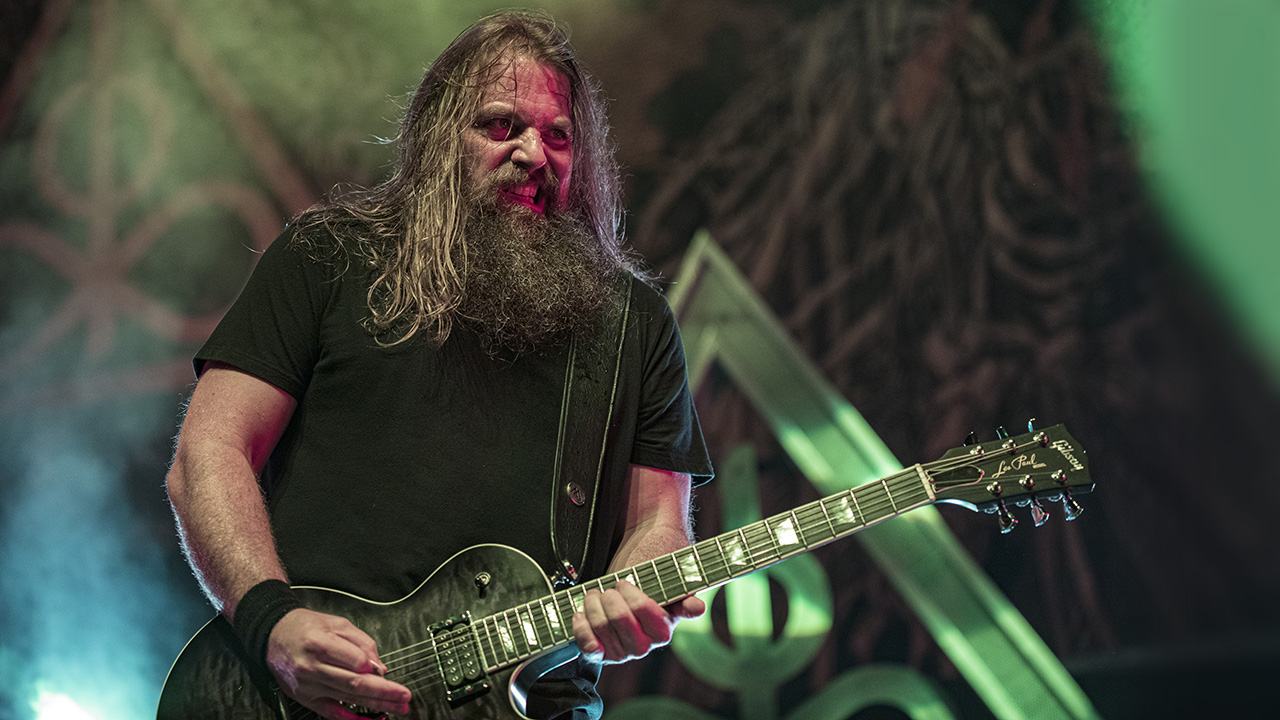Lonely Robot: “I was listening to a lot of David Gilmour and Joe Bonamassa. I got really into that big vibrato – vibrato that you can drive a bus through”
After seriously reining things in on the latest offering by his main band, Frost*, prog-rock stalwart John Mitchell brings his axe to the fore on the new Lonely Robot album, A Model Life
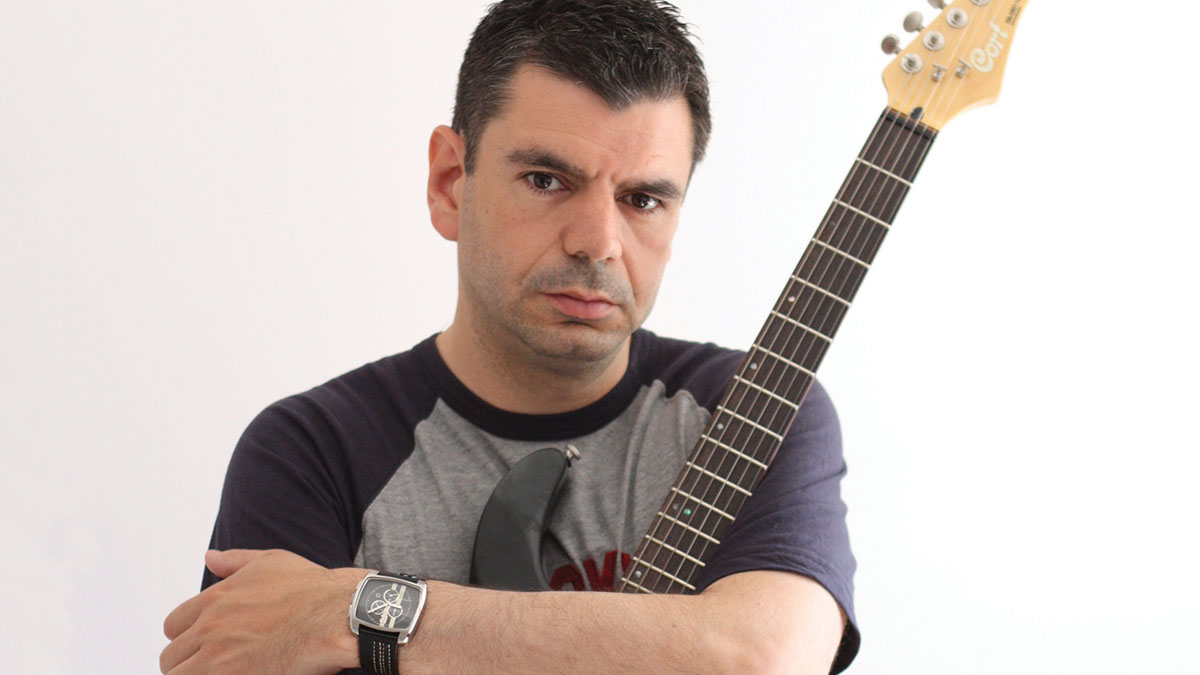
There are many great reasons UK prog veteran John Mitchell begins his latest Lonely Robot album, A Model Life, with a cut called Recalibrating. For starters, it’s a ripper – a pulse-quickening piece of peak pop-fusion-era Police full of vibrantly polyrhythmic piano and the guitarist’s uncanny waggling.
The tune takes inspiration from Mitchell having exited a 16-year personal relationship during the height of Covid lockdowns, the musician faced with pushing himself forward and “trying to find [his] way again”.
Fittingly enough, A Model Life is likewise Mitchell’s return to his Lonely Robot solo project, after delivering last year’s Day and Age with his other long-term project, progressive supergroup Frost*. And in terms of his lead chops, A Model Life was also a chance to get his bearings back after reining things in on that earlier effort from Frost*.
“I wouldn’t say I was banned from doing guitar solos on the Frost* record, but [vocalist-keyboardist] Jem [Godfrey] and I agreed that – rather like there are no cymbals on Peter Gabriel III – there would be no widdily-widdily keyboard or guitar playing,” Mitchell says through a robust laugh.
“We said, ‘No, what we’re going to do is sit on our hands for this album,’ which we did. [Outside of] about two bars of slight noodling, there are no guitar solos on Day and Age. I just thought [with A Model Life], ‘OK… we did that, now I’m going to go in the opposite direction.”
True to his word, Mitchell courses extroverted guitar mania throughout A Model Life. In addition to the progressive synchronicity of Recalibrating (“It’s not a [Lonely Robot] album unless I’ve ripped off a Police song”), check how he revels in the royal pomp of a Brian May-like roil of hammer-ons on the record’s Starlit Stardust.
That said, while over the years Mitchell has scorched through razzle-dazzle runs with aplomb, he’s also tuned into the fact that sometimes your biggest leads can be your most spacious.
Get The Pick Newsletter
All the latest guitar news, interviews, lessons, reviews, deals and more, direct to your inbox!
“I really wanted it to be blues-rock guitar solos,” he says of his general approach through A Model Life. “I was listening to a lot of David Gilmour and lots of Joe Bonamassa. I got really into that big vibrato – vibrato that you can drive a bus through; you’re not even sure which notes they are anymore, they’re so wide.”
While Mitchell’s evocative wrist-rocking technique is paramount to A Model Life’s Species in Transition and Rain Kings, the guitarist also has an affinity for the similarly undulated tone he finds in a vintage Boss VB-2 pedal.
“It’s more subtle than chorus,” he suggests of the effect. “You know, chorus is really up in your face, isn’t it? It says, ’80s!’ – whereas vibrato just sounds like someone got the record and bent it slightly.”
Chorus is really up in your face, isn’t it? It says, ’80s!’ – whereas vibrato just sounds like someone got the record and bent it slightly
Though often inspired by the wobbling tonality of Andy Summers’ iconic Police work, Mitchell’s A Model Life is nevertheless a modern prog-pop vision. Its roots were sewn at the dawn of the pandemic, the effects of distanced measures perhaps seeping into Mitchell’s psyche as he contemplated isolation (Island of Misfit Toys).
The existential dread of the era may have initially had him panicked, but music quickly rewired Lonely Robot to break out of various “bad habits.”
“I went through a good month of going batshit crazy on alcohol – I’m sure a lot of people did,” he says. “I made myself quite ill, [but] by the end of it I remember the label rang me up and said, ‘You know that you’ve got to hand in your album in about a month’s time?’ I was like, ‘OK, right… snap out of it, and let’s make a record.’ That was the best thing I could have done at that point in time, because it focused me.”
As he tunneled toward A Model Life, Mitchell used its Duty of Care to reflect on being brought up by adoptive parents. The title track, meanwhile, considers how the perfect life we’re seeking – or at least presenting through social media – is ultimately unachievable. Maybe that’s the beauty of it all. He summarizes: “You spend your life staring at Instagram, and everything’s powder white like an Enya video, [but] in actual fact that’s not what life is like.”
Pushing out of long-term relationships during the pandemic was a struggle, even if he feels it’s been for the best. Music, however, is the place where he’s always eager to grow.
While Lonely Robot’s first few full-lengths centered on astral themes – formally known as The Astronaut Trilogy – both 2020’s Feelings Are Good and A Model Life are grounded in real-life experience. Mitchell handles guitar, bass, synths and programming on this latest release – Frost* drummer Craig Blundell also contributes live beats – but his instrument list is ever-growing.
“Going back to the first couple of Lonely Robot albums, they were very sci-fi; there was lots of Lydian mode, lots of ambient soundscapes,” he says. “[With] this one I wanted to muck around with different sounds. On [Digital God Machine], there’s distorted cello – I put it through various effects to create new and interesting sounds.”
Though newly armed with a litany of instruments, there are some eternal workhorses in Mitchell’s arsenal. His main guitar on the new album is the Japanese Squire Tele he bought in 1989, which remains in fresh-from-the-factory form. While the VB-2 was a factor, the bulk of his gritty drives and gutsy texturing come sculpted out of his GT-1000 guitar processor, which has become a plug-and-play mainstay of his live rig, too.
“I used that across the whole record – no sign of an amp anywhere,” Mitchell boasts of his love of the Boss processor. “I’ve embarked upon a modeling career, and I’m never going back!”
- A Model Life is out now via Inside Out.
Gregory Adams is a Vancouver-based arts reporter. From metal legends to emerging pop icons to the best of the basement circuit, he’s interviewed musicians across countless genres for nearly two decades, most recently with Guitar World, Bass Player, Revolver, and more – as well as through his independent newsletter, Gut Feeling. This all still blows his mind. He’s a guitar player, generally bouncing hardcore riffs off his ’52 Tele reissue and a dinged-up SG.
“I love the guitar, but essentially it’s an instrument that belongs to the 20th century in many ways. So it’s a question of, what can you do to try to reinvent that vocabulary to make it seem relevant?”: Steven Wilson on the making of a cosmic prog epic
“I had big shoes to fill, but I knew I had a lot to offer on my own. I think Billy Corgan saw that in me”: From Veruca Salt to the Smashing Pumpkins and Garbage, Nicole Fiorentino has become alt-rock's go-to bassist




